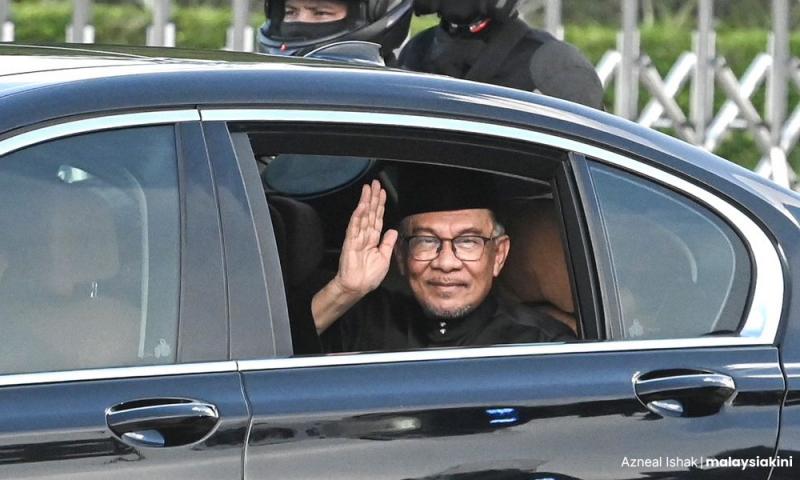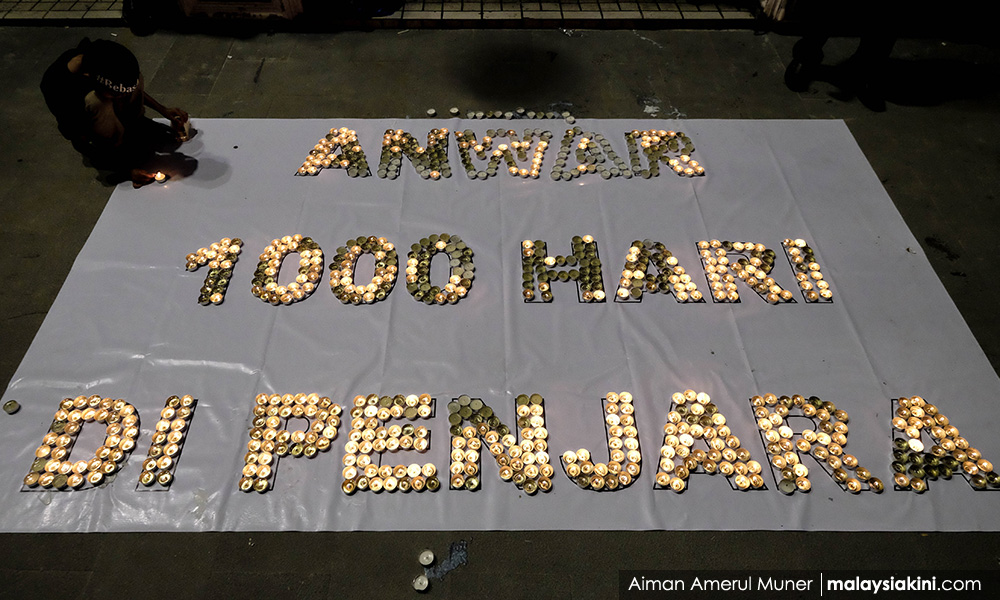
Terence Netto
COMMENT | Governing, no matter who does it, is part philosophy, part exigency, part panic, and part payoff. And it is never easy to ascribe precise percentages to each component.
But poetry (read: philosophy) has been an essential part of the story of Anwar Ibrahim’s durability in Malaysian politics.
With Rafizi Ramli’s resurgence in PKR earlier this year, it was anticipated that the political career of Anwar would end without the achievement of his long-sought goal of the premiership of the country.
But by year’s end, in a turn of fortunes that reminds us of how hazardous the business of political prognostication is, there is cause to reflect on the relevance of a refrain from the poetry of Thomas Stearns Eliot, possibly Anwar’s favourite bard:
“In my end is my beginning.”
The line is from ‘East Coker’, a poem that is a summation of Eliot’s beliefs.
What is apposite about the themes with respect to Anwar’s political odyssey is Eliot’s counsel on the necessity of waiting.
Waiting is one of the most arduous requirements of leaders of destiny.
Here is Eliot on that necessity:
“I said to my soul, be still and wait without hope, for hope would be hope for the wrong thing; wait without love, for love would be love of the wrong thing; there is yet faith, but the faith and the love are all in the waiting.”

Waiting, with every fibre of stifled intuition intact, is one of the most difficult things to bring off, but ask the leaders of destiny and they will testify that it is only bearable when you know in your marrow what Eliot means by the conclusive lines of ‘East Coker’:
“So the darkness shall be the light and the stillness the dancing.”
It is part of the eclecticism of Anwar that he can appreciate the poetry of a Christian writer while being resolute in his Islamic beliefs.
No middle ground
To long-time observers of Anwar, there is no nuanced middle ground with respect to the public’s regard for him.
He is either one of the bigger hoaxes to be foisted on the Malaysian body politic or he is its salvation.
With respect to the daunting task of reconstitution of the Malaysian polity, he will either fulfil philosopher Isaiah Berlin’s definition of greatness in a leader – the ability to transform paradox into platitude – or his odyssey will end in a whimper, to use another phrase from Eliot.
It is ironic that his biggest nemesis, Dr Mahathir Mohamad, his ally at one time, saw his career end in infamy simultaneously as Anwar’s has arrived at what is evidently its penultimate stage.
This disjunction is notable for there is not a shred of poetry in Mahathir; there is only calculation and dissembling.
There is dissembling in Anwar.
We are about to know whether it is of the flagrantly duplicitous sort, or just one of the necessary devices in an occupation – politics – which, really, even at its least deplorable, is a practice to deceive.
TERENCE NETTO is a journalist with half a century's experience.
***
kt comments:
An elegant, beautiful and poetic essay, but then that's Terence Netto 😀😁😃
No comments:
Post a Comment